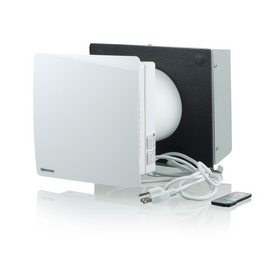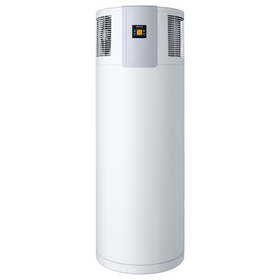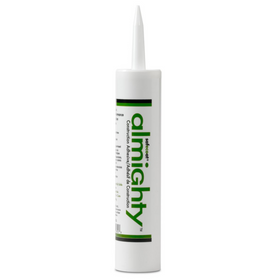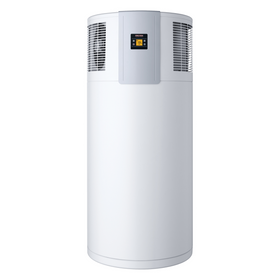
Future-Proofing Your Home with Net Zero Ready
Last Updated: Feb 9, 2025The residential building sector accounts for a large portion of global electricity consumption and greenhouse gas emissions. If you have dreams of reducing your home's energy use drastically, then a net zero ready home might be for you.
Table of Contents
- What is a Net Zero Ready Home?
- Why Design and Build Net Zero Ready Homes?
- Are Net Zero Ready Homes Expensive?
- What is a Net Zero Ready House Plan?
- What Net Zero Ready Home Certifications are Available?
- Case Study: Hill Bros. Homes
- Case Study: Healthy Communities
What is a Net Zero Ready Home?
A Net Zero Ready home is designed and built to the same standards as a Net Zero home without solar panels. A Net Zero Ready home is wired so that in the future, as solar or other renewable energies become more affordable, solar panels or other options can be installed. In essence, a Net Zero Ready home provides a net-zero home's benefits without all of the initial financial investment. This home type offers a streamlined, efficient path to achieve Net Zero Energy when the homeowner is ready and able to pursue it.
The United States Department of Energy (DOE) defines a Net Zero Ready home as follows:
A Net Zero Ready Home is a high-performance home which is so energy efficient, that a renewable energy system can offset all or most of its annual energy consumption.

A DOE Net Zero Energy Ready Home, for example, is designed and built to operate 40% to 50% more efficiently than a traditional home and is third-party verified to ensure reliability. While less than 2% of newly constructed homes are Net Zero Ready, this market is growing and increasing in popularity.

Want to see some examples of Net-Zero Ready Homes? Head over to the DOE's Office of Energy Efficiency and Renewable Energy website that provides virtual tours of 260 Net-Zero Ready Homes across the United States.

Why Design and Build Net Zero Ready Homes?
By introducing Net-Zero Ready Homes into the market, we can help to lower the environmental impact of homes. Net Zero Homes reduce the reliance on the energy sector, thus improving their resiliency. In essence, the net-zero movement is too critical not to succeed.
Moreover, a home designed to Net Zero standards will save substantial operational costs throughout its lifetime. Some builders, such as Wright Jenkins, advertise up to 70% in operational cost savings. Considering the increased comfort, safety, and durability elements, they are a reliable investment for consumers, builders, and developers. Net Zero Homes are also a good option for those interested in disaster relief homes. Many Net Zero Homes follow the Insurance Institute for Business and Home Safety's FORTIFIED program.

Are Net Zero Ready Homes Expensive?
A Net Zero Ready Home is typically more expensive than a typical home. However, according to the Rocky Mountain Institute, the cost increase is modest and smaller than most consumers realize. Net Zero Ready Homes implement cost-competitive design strategies to keep prices as reasonable as possible. And as this market matures, costs should become even more affordable.
Another report prepared by the DOE illustrates the cost savings of a DOE Zero Energy Ready Home compared to a baseline home monthly. In addition, some states provide financial incentives for buildings built to these standards.
Currently, most certifications are for individual homes. However, the DOE is developing a certification program for multi-family residences that should provide a streamlined process for affordable certifications of multiple houses at once.
What is a Net Zero Ready House Plan?
A Net Zero Ready House Plan is a set of construction documents for a home designed to Net Zero standards, including wiring for future solar PV installation or another type of renewable energy. Take a look here for some examples of plans.

Are you looking for a builder that specializes in Net Zero Ready homes? Click here for an inventory of builders in both the United States and Canada.

What Net Zero Ready Home Certifications are Available?
There are several Net Zero Ready Home Certifications and programs available in the market. Below are a few of the most popular:
- US Department of Energy Zero Energy Ready Home (ZERH) Certification Program
- Earth Advantage Zero Energy Ready Certification Program
- PHIUS (Passive House Institute US, Inc.) PHIUS+ Certification Program
- CHBA (Canadian Home Builders' Association) Net Zero Home Labelling Program
- Better Buildings BC Net Zero Energy Ready Program
These certification programs use sound science and data to develop certification requirements. Many programs also incorporate other certified products like WaterSense products and ENERGY STAR appliances. Most programs require energy modeling before construction and post-construction energy tests to verify that the building is functioning as effectively as it was designed to do.
A Net Zero Ready Home's key components include energy efficiency, conservation, and efficient water management. It also ensures that homes have a substantial thermal building envelope and a healthy indoor air quality. Notably, these homes are set up for future solar PV installation or other renewable energy technologies for homeowners to install when appropriate.

Case Study: Hill Bros. Homes
Hill Bros. Homes have been building energy-efficient houses in New Brunswick, Canada, for a long time. All their homes since 2000 have met Canada's R-2000 standard. This legacy of good building practice saves the combined group of homeowners over $150,000 a year in energy bills. They recently developed a high-density residential development called Reynolds Street and a traditional residential development called West Hills.
Now Hill Bros. has stepped it up a notch, building Net-Zero Ready Homes. They are following the new standard launched in 2017 by the Canadian Home Builders Association. These homes more than meet the R-2000 standard. They are even more energy-efficient and built solar-ready, which means they have conduit, planned space, and connection capacity in place, ready to install a grid-connected solar photovoltaic (PV) array to generate their electricity.
Operating at net zero starts with minimizing energy demand. These homes use 80% less energy than code-built homes in the Canadian climate. They have thick insulation, triple-glazed windows, and airtightness rivaling the best in the world. Combine that with heat recovery ventilation, ENERGY STAR appliances, and LED lighting. The energy consumption is so low that a modest solar panel array on the roof can offset all of it annually. Hence, the "Net Zero" name – the home's net energy consumption is designed to be zero each year once the solar panels are installed.
Beyond energy efficiency, the homes feature environmentally sound choices like water-saving fixtures and low-VOC finishes that maintain healthy air quality. They have been designed for healthy living conditions and a lower environmental footprint. The heating and cooling are provided by a heat pump, backed up with a high-efficiency condensing gas furnace.
Hill Bros. build townhomes, garden homes, duplexes, and single-family dwellings. All their projects going forward will be at least Net Zero Ready.
Maria Saxton
Located in Roanoke, Virginia, Maria Saxton holds a Ph.D. in Environmental Design and Planning from Virginia Tech. She works as an Environmental Planner and Housing Researcher for a local firm specializing in Community Planning, Architecture, Landscape Architecture, and Historic Preservation. Her dissertation explored the environmental impacts of small-scale homes. She serves as a volunteer board member for the Tiny Home Industry Association.











